Makes The Difference


WindWorks is a specialist wind instrument atelier by musicians, for musicians.
Since its inception in 2003, our technicians have revived countless instruments and we are proud to be the choice service centre for many band directors, be it their personal instrument or their schools'. Our clientele includes professional musicians of orchestras and wind bands in the region.
Our technicians are professionally trained in repair college and are factory-certified by world-renowned manufacturers such as Muramatsu, Miyazawa, Brannen, Powell, Buffet Crampon and Selmer Paris.
Being active performers, we completely understand the advantage and joy a well-serviced instrument can give to its owner.
 Sean Tan
Sean Tan
Sean is the woodwind repair specialist at WindWorks. He holds a Mechanical Engineering degree from Nanyang Technological University and a specialist diploma in Band Instrument Repair Technology from Renton Technical College (USA). He is certified by factories of Buffet Crampon Clarinets (France), Verne Q. Powell Flutes (USA), and Muramatsu Flutes (Japan). He is also a certified Straubinger™
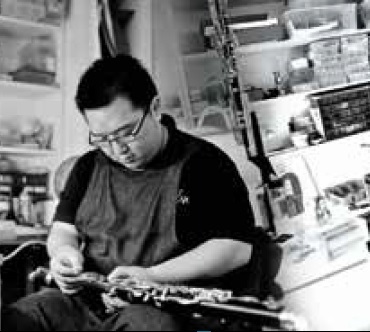 Lim Seng Tat
Lim Seng Tat
Seng Tat joined WindWorks in 2010 after a stint as a band director. He apprentices with Sean Tan in woodwind repair and focuses primarily on clarinets and lower woodwinds like bass clarinets and bassoons. He is factory-certified by Buffet Crampon
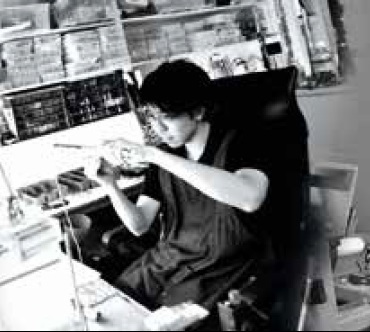 Chan Tung Hoe
Chan Tung Hoe
Tung Hoe has been with WindWorks since 2008. Upon graduation with a Biotechnology degree from the university, he apprenticed under Sean Tan in woodwind repair and focuses on flutes and piccolos. He is factory-certified by Muramatsu Flutes (Japan), Miyazawa Flutes (japan), Brannen Brothere Flutemakers, Inc (USA) and Buffet Crampon (France).
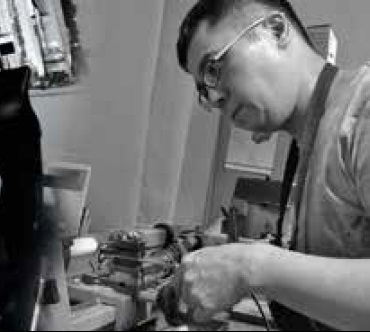 Yap Yoke Lim
Yap Yoke Lim
Yoke Lim is the brass repair specialist at WindWorks. He holds a Mechanical Engineering degree from Nanyang Technological University and a specialist diploma in Band Instrument Repair Technology from Renton Technical College (USA). He is factory-certified by Selmer Paris Saxophones (France).
At WindWorks, we believe that a well-maintained instrument is just as important as a well-made one. This is why we always emphasise to our customers that a well-maintained but inexpensive instrument will always play better than one that is expensive but badly maintained.
Most schools spend hundred of thousands of dollars just to set up a band curriculum programme, yet very little is spent to make sure that these instruments function to their full potential. WindWorks believes that if more were spent on the maintenance programme, schools can cut down on unnecessary purchases of new instruments.

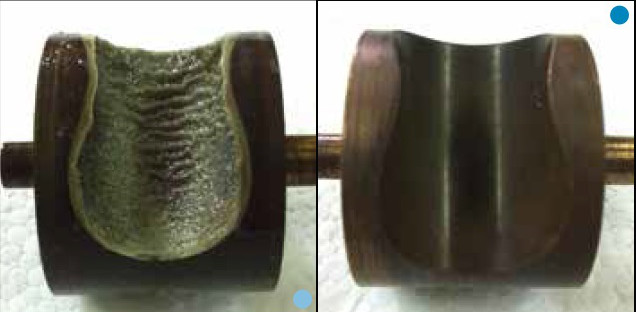
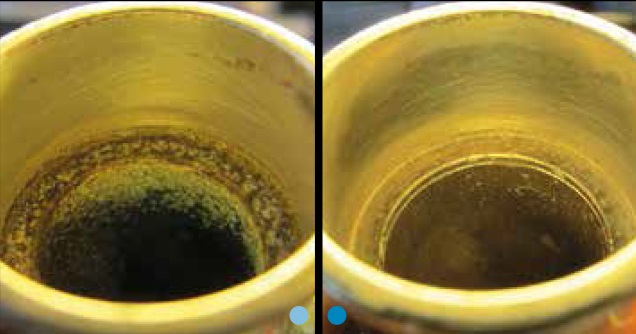
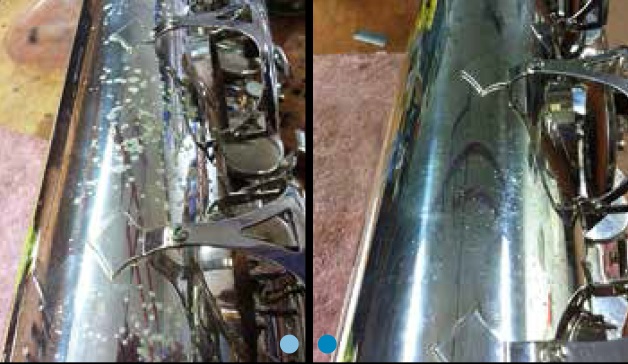
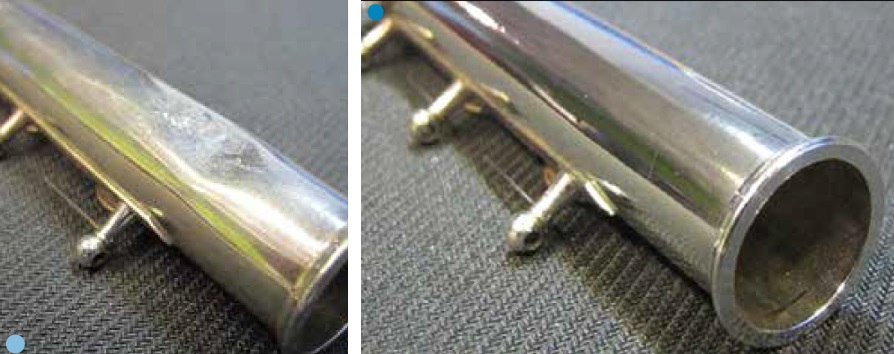

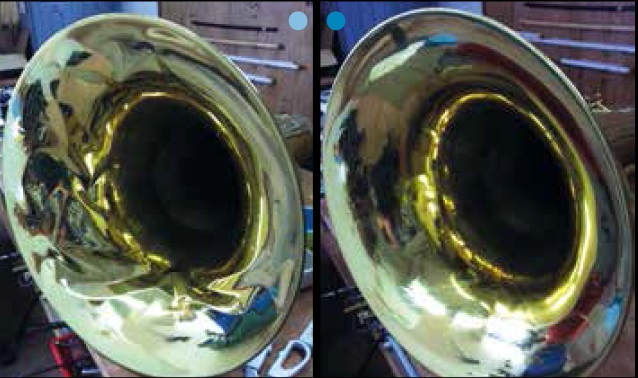
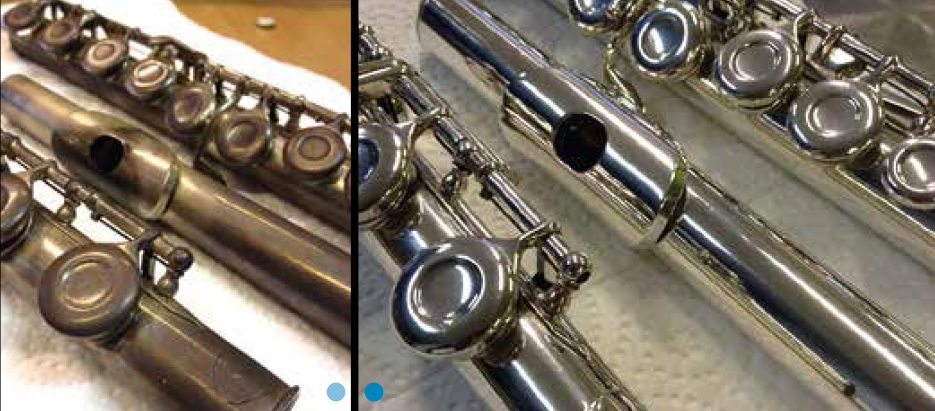
3 Rules For Extending The Life of Your Instrument
Wind and brass instruments breathe out melodious music that is a pure pleasure to listen to. But did you know that these instruments also pose a health risk?
How? If the instruments aren't fastidiously cleaned, over time the mouthpiece and internal chambers become fertile breeding grounds for a host of disease-causing bacteria and fungi (see inset pictures), according to a recent study published in the journal General Dentistry.
It is common sense, if you think about it - these are the parts that come into contact with the musician's mouth, and where moist air, along with saliva droplets, are blown into. Coupled with Singapore's humid weather conditions, bacteria, molds and yeasts will thrive in these instruments (and their cases), and lead to serious skin infections around the mouth, asthma and a host of other illnesses.
What then should you do? Observe good hygiene habits such as keeping your musical instrument and case clean and dry.
For a better peace of mind, send your instruments for regular cleaning and maintenance.
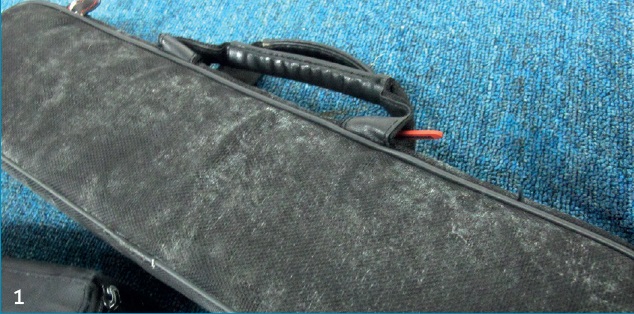
Moldy instrument case
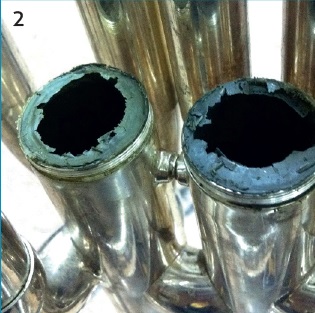
Clogged valve section of euphonium
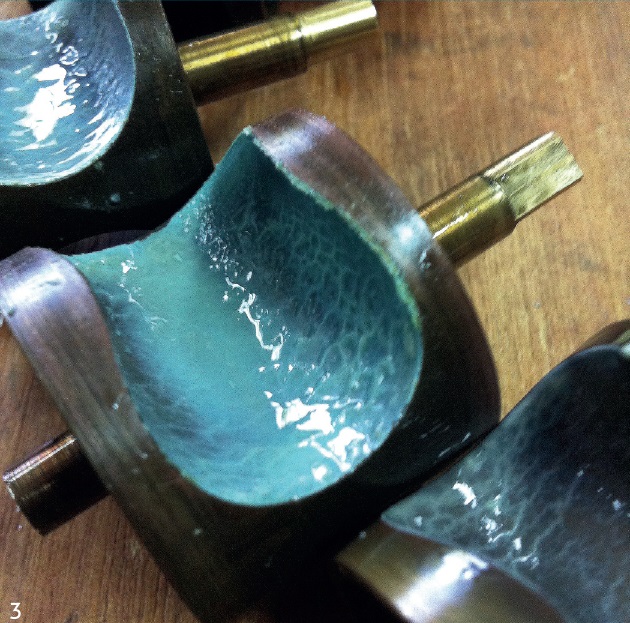
Grime build-up in tuba valve section
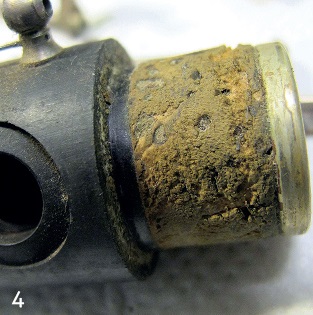
Decomposition of tenor cork
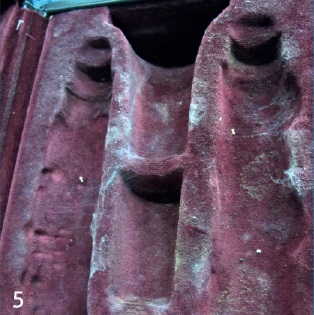
Mold- and yeast-infested clarinet case
removing build-up and calcification inside pipes of brasswind instrument
smoothening uneven surfaces, dings and bumps caused by accidents
tightening of loose keywork and replacement of pads for woodwind instrument
regular maintenance and servicing that will extend the lifespan of woodwind instrument
specific repair for a particular malfunctioning part to return an instrument to good playing condition
specialised adjustment to further enhance an instrument
physical inspection and documentation on the condition of instrument inventory
workshops on instrument care, handling and maintenance
specialist service to inspect and rectify any potential problems before a major concert or competition
refurbishing used instrument to give it a second life
37, Lorong 23 Geylang, #06-01,
Yu Li Industrial Building. Singapore 388371
tel: +65 8020 9720 fax: +65 6747 9606
email: hello@windworks.sg
Opening Hours:
Monday - Friday: 11:00 to 19:00 | Lunch: 13:30 to 14:30
Saturdays: By appointment only (Tel: 8020 9720)
Closed on Sundays and Public Holidays

